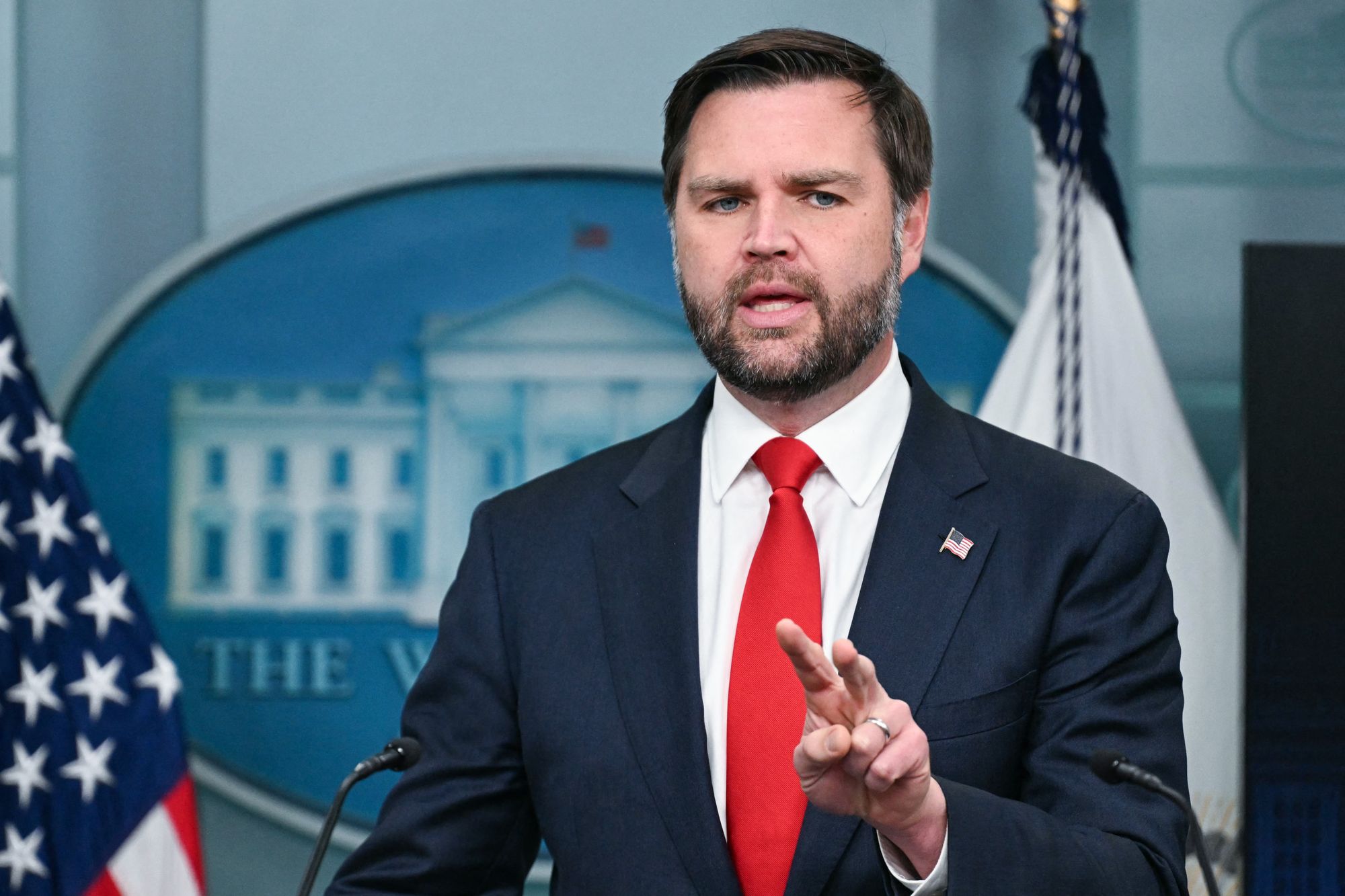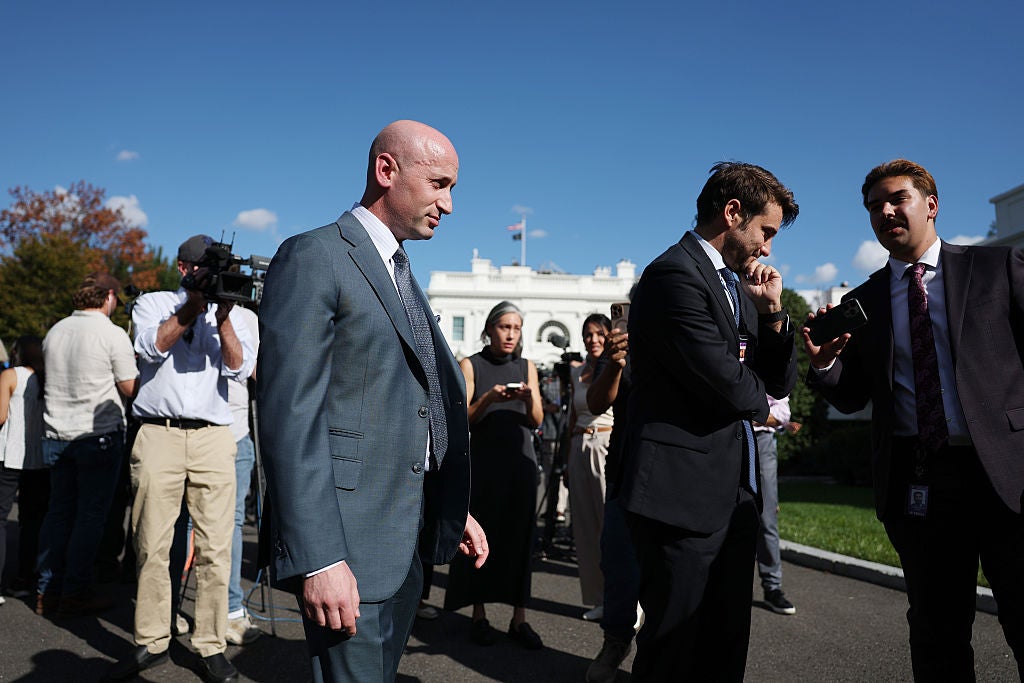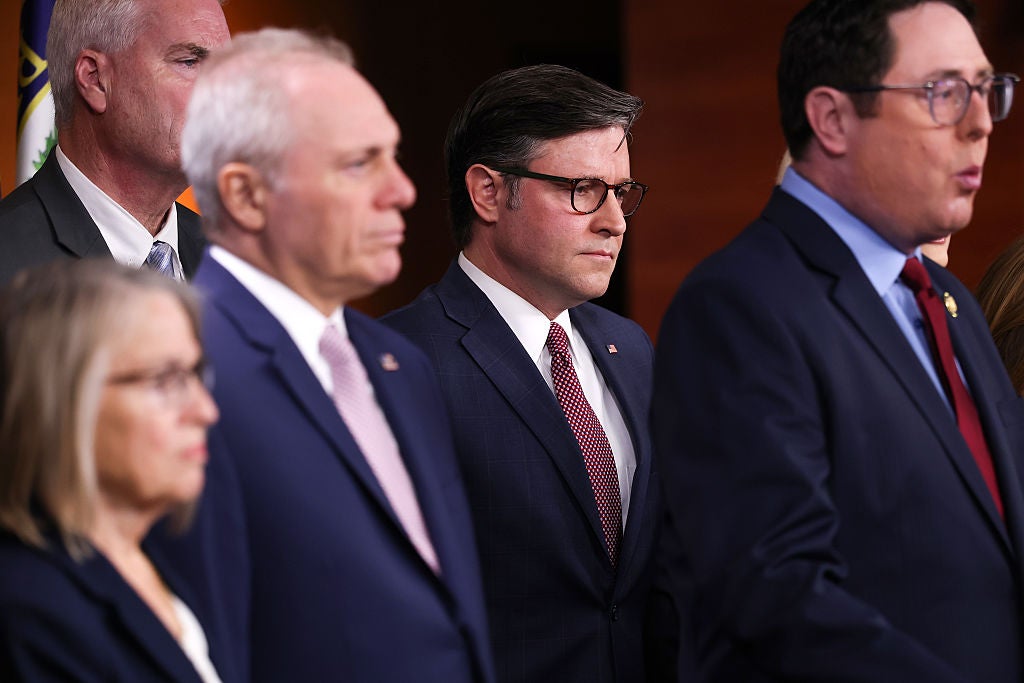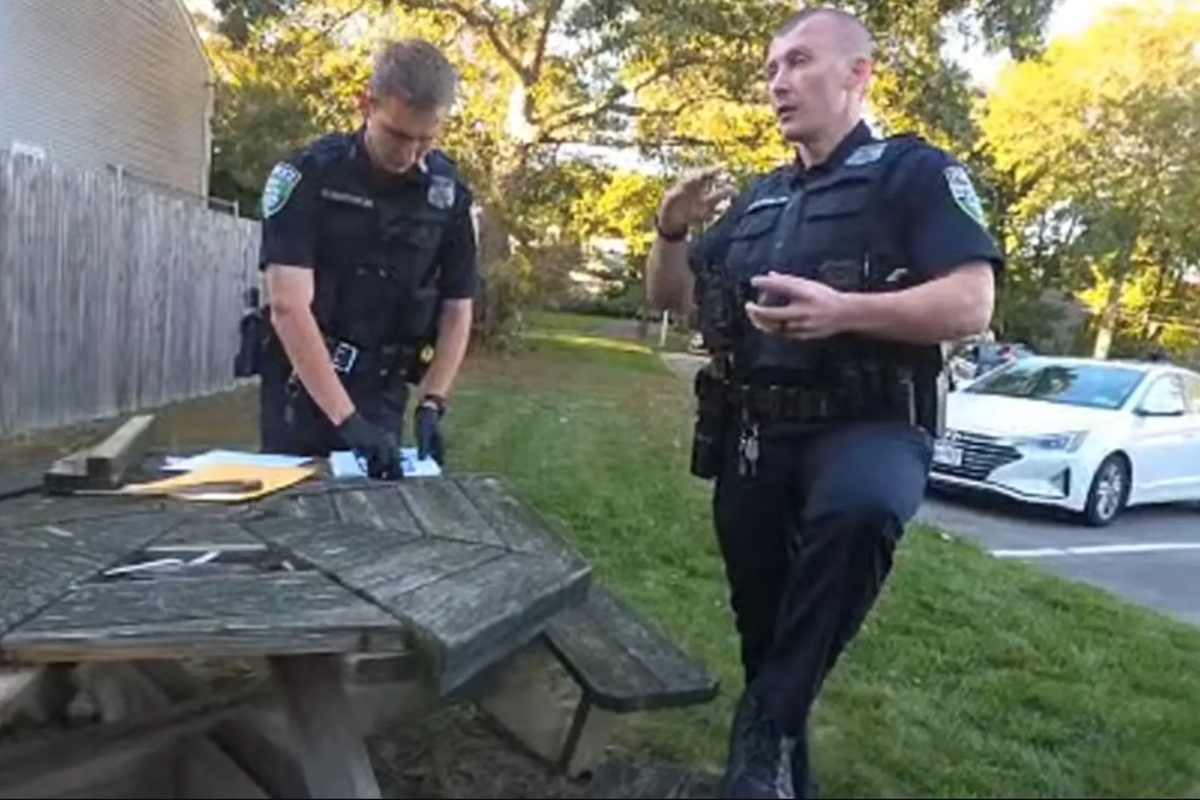Donald Trump and J.D. Vance are leaning back into an issue that even many of his own supporters argue derailed his first term in the White House after just a few short months: racism.
Even with his party fighting a messaging war over a government shutdown and the president on a victory lap over his Israel-Hamas peace plan, Trumpworld fell back this week into several conversations about the Republican Party’s issues with racism and the expressions of support for violence that MAGA seeks to pin entirely on the left.
Donald Trump himself delivered a one-two punch to hammer that negative image of the GOP into place on Wednesday when he highlighted the extreme anti-immigrant views of one of his closest advisers while tossing out praise for a Confederate leader. The latter moment was viewed as a Charlottesville-esque dogwhistle to the far right in the eyes of many of Trump’s critics.
For Vice President Vance, it meant a whataboutism defense of the pro-Nazi rhetoric, aanti-Black verbiage and explicit calls for violence and death in leaked Young Republican chat logs that hit Washington and Capitol Hill this week like a sewage spill.
Responding to a Politico article which uncovered hundreds of examples of usage of racist slurs for Black people, homophobic slurs for LGBTQ+ people and a bottomless pit of misery, violence and rage that apparently dominates the conversation among some prominent young conservative activists, Vance at first claimed that a messages sent by a Democrat running for attorney general in Virginia expressing a cold acceptance of violence towards Republicans and their families was much worse.

“This is far worse than anything said in a college group chat, and the guy who said it could become the AG of Virginia. I refuse to join the pearl clutching when powerful people call for political violence,” Vance wrote in response to the Young Republicans’ chat outrage.
By comparison, in the group chat, members of some of the most prominent Young Republicans groups in the country — organizations which funnel operatives to Republican campaigns, congressional offices and state legislators (and who’s ages run from 18 to 40) — stated repeatedly that they wanted to see mass murder of their political enemies and remarked about putting people in gas chambers.
Unlike Vance, other prominent Republicans — like House Speaker Mike Johnson — condemned the texts unequivocally. But they still came as unforced-error distractions at a time when the Trump administration and congressional Republicans are trying to refocus the narrative.
And it’s the sort of “ironic” racism that has long permeated circles of the younger conservative right, most famously exemplified by Nick Fuentes and his “Groyper” faction. Long considered persona non grata at CPAC and Turning Point USA conferences, young conservatives in College Republican and Young Republican circles have increasingly been warning about the growing influence of this kind of extreme online shock-value racism and sexism in such groups for years.
This week it looked like that wing of the far right has been gaining real purchase in Washington.
As if that weren’t enough, Trump, at a White House event on Wednesday, appeared to joke that his senior aide Stephen Miller harbored views that weren’t exactly palatable for most Americans.
“I want to thank Stephen Miller, who is right back in the audience right there. I’d love to have him [come up]. I love watching him on television. I’d love to have him come up and explain his true feelings. Maybe not his truest feelings. That might be going a little too far,” Trump quipped.

On the same day that he joked about his mass deportation architect’s “truest feelings,” Trump gave a completely unprovoked shout-out to a figure of absolute racial resentment in American society: Confederate General Robert E. Lee.
Declaring that a room full of some of the nation’s biggest business leaders “would’ve been OK” with a statue of Lee in Washington, the president added that “it would have been OK with me” to honor a man who led a war against the American government and sought to break up the Union to defend the seceding states’ presumed right to continue the institution of human slavery of Black people.
Meanwhile, at the State Department, officials continue to use the assassination of Charlie Kirk as a cudgel against visa holders and posted a thread on X this week celebrating the revocation of status for several foreign nationals, not identified by name, who posted messages on social media decrying Kirk as a racist and a misogynist after his death. Not for threatening violence against him — merely for having the audacity to criticize his works.
Kirk, the founder of Turning Point USA, was shot dead by a sniper as he spoke at Utah Valley University last month in an attack that sparked a furious effort by the right to enforce recriminations against Americans, public officials and private citizens alike, who denounced Kirk and his views after his murder.
Congress can’t even escape this cloud.
Johnson, on Thursday, held a press conference to mark Day 16 of a federal government shutdown that has now endangered pay for members of the armed services and resulted in thousands of federal workers being furloughed. Thousands more were targeted in retribution by the White House and Office of Management and Budget in reduction-in-force (layoff) initiatives.
Instead, several questions Johnson took Thursday morning were focused not only on the Nazi-loving texts uncovered by Politico but the discovery of an image depicting an American flag with the stripes rearranged to form a swastika in a Republican congressman’s office.
The image, seen on a staffer’s cubicle wall during a virtual meeting, was found inside the office of Rep. Dave Taylor, a congressman from Ohio. Taylor called Capitol Police “immediately,” he told Politico, upon learning about the image. But responsibility for the image being pinned to a cubicle wall in his office has not been established.

“I am aware of an image that appears to depict a vile and deeply inappropriate symbol near an employee in my office,” Taylor said. “The content of that image does not reflect the values or standards of this office, my staff, or myself, and I condemn it in the strongest terms.”
Though it’s never given many inside Trump’s inner circle much pause, these kinds of conversations have always given congressional Republicans migraines. During Trump’s first term, Republicans on the Hill were known for dodging reporters in hallways and elevators, and generally to refuse answering questions about issues like Charlottesville and the president’s comments about “s***hole countries” in Africa and the Caribbean.
Johnson and Thune do not have that luxury. They are trapped in front of the cameras, both by virtue of being in the majority and due to their ongoing efforts to “win” the messaging war over Democrats on the government shutdown.
And they are inextricably tied to Trump — and to his rhetoric.

.jpeg)





































 English (US) ·
English (US) ·